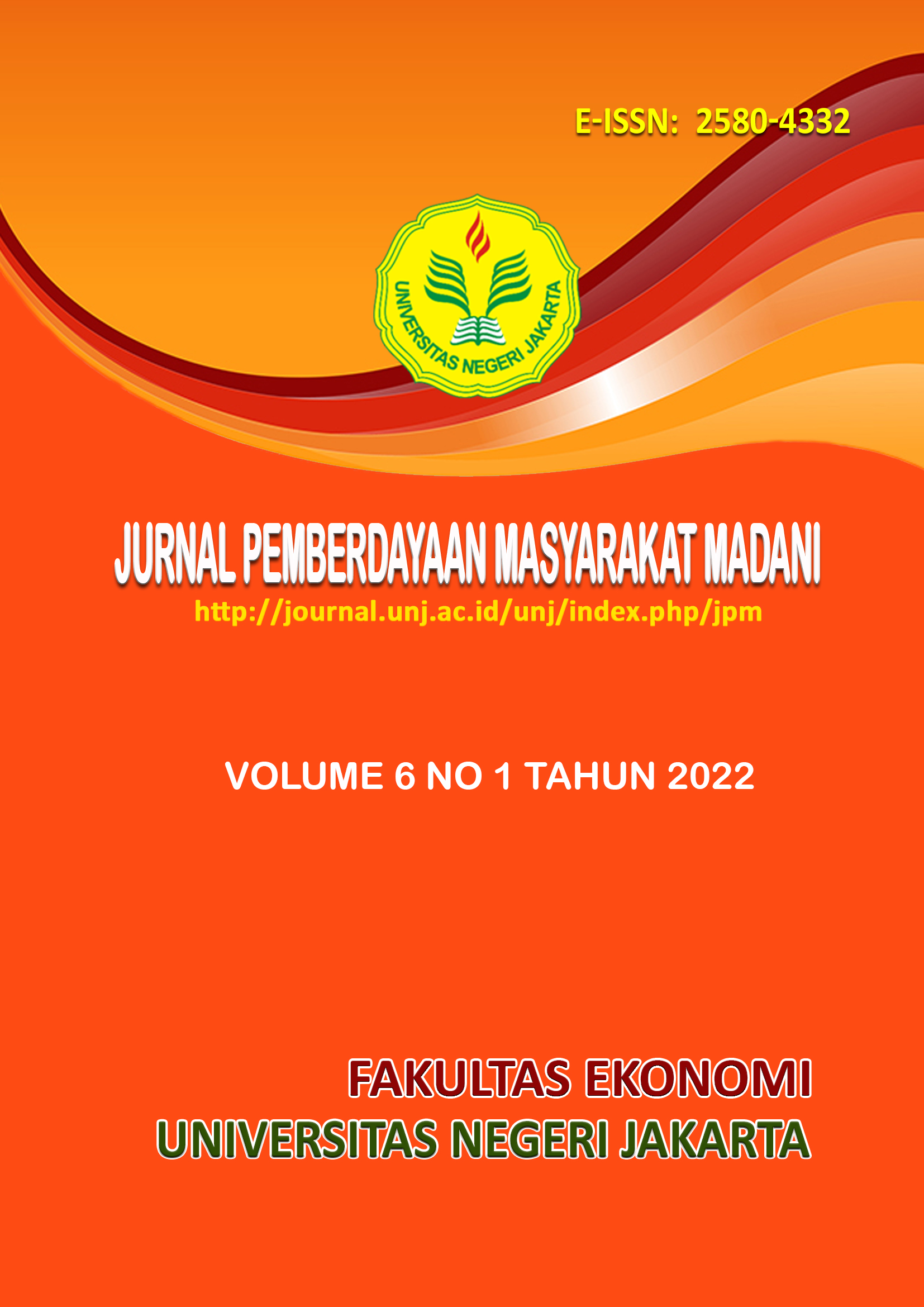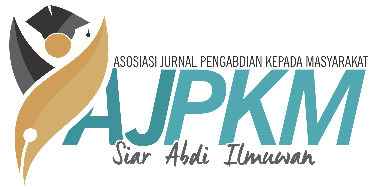Education Pillar as a Community-Based Prevention Stunting During Covid-19 Pandemic
DOI:
https://doi.org/10.21009/JPMM.006.1.08Keywords:
Community-Led Total Sanitation (CLTS), Stunting, Education, Cadre, Covid-19 pandemicAbstract
The high prevalence of stunting and poor environmental health conditions at Bengkulu and Kupang City, baseline the need for assistance to families to provide education on Community-Led Total Sanitation (CLTS). Through the implementation of the CLTS module science and technology, the purpose is to foster and empower CLTS cadre groups as family companions to educate about the 5 pillars of CLTS by increasing family knowledge, attitudes, and actions in preventing and overcoming stunting. The target audience is 40 families in Bengkulu and 40 families in Kupang City. Community Service activities were preceded by socialization with local governments and health workers, followed by training and coaching of cadres, and family assistance activities, by providing CLTS sanitation education for 4 months through home visits, assessed once a month. The results show that cadre training is effective in increasing the knowledge and attitudes of cadres. Family assistance activities are effective in increasing family knowledge, attitudes, and actions about CLTS in stunting prevention. Environmental health officers together with cadres need to improve programmed triggering activities, monitoring, and evaluation, as well as assistance for the community and local government advocacy to support the success of the CLTS implementation.
Downloads
Published
How to Cite
Issue
Section
License

This work is licensed under a Creative Commons Attribution-NonCommercial-ShareAlike 4.0 International License.
















